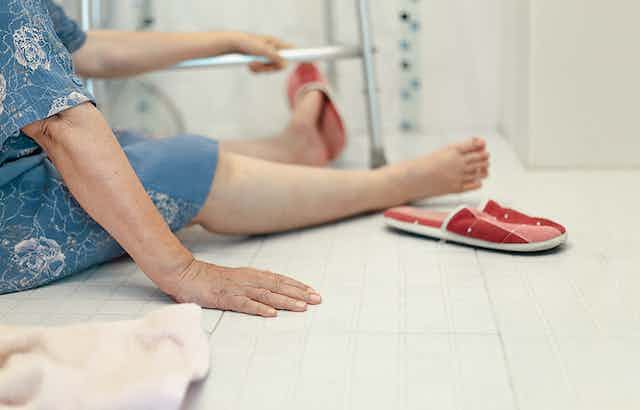
It is crucial to recognize the signs and get immediate medical attention to prevent a heart attack. Blockage of blood flow in the heart is what causes heart attacks. Fat deposits and other factors can block the coronary artery. This causes a reduction in blood flow to the hearts, which can lead to oxygen deprivation. In addition, the lack of oxygen can cause tissue damage to the heart.
Lifestyle changes are a good idea if your heart is in poor condition. These include eating a healthy diet and keeping your cholesterol under control. Follow the recommended treatment of cardiac conditions.
It's also a good idea to maintain a healthy weight. Being overweight can increase your risk for many diseases, such as heart disease. Remember that smoking increases blood pressure.
Preventing a heart attack by taking medication to lower your blood pressure is possible. You should discuss with your doctor the possibility of starting medication if you don't already take it. Other medications you might be prescribed are antiplatelet drugs, which are used to prevent the clumping of platelets in the blood. For some, low-dose aspirin may be recommended.

You can reduce how much fat you eat. Unhealthy fats in the diet can cause atherosclerosis. Instead, increase the intake of fiber-rich foods like fresh fruits or vegetables. Fruits are a good source of minerals and vitamins. Vegetables can be a great source of soluble fiber which can help reduce the risk of developing cardiovascular disease.
A low-fat diet should include poultry and dairy products. Avoid foods high-in saturated fats and sugar. If you do have to eat meat, make sure it is lean and less than 10 per cent fat.
A healthy diet is important, but you can also reduce your chance of developing heart disease through exercise. Walking or running can increase blood flow to the heart. Healthy eating habits can also help reduce inflammation.
Limiting the amount of alcohol that you consume is another important thing. Drinking alcohol can increase blood pressure. People who consume more than 2 drinks per day are at greater risk of developing heart disease.
Saturated fats and sodium can increase your risk for heart disease. These substances are frequently found in processed foods. Eat more fruits, whole grains, and legumes. You should get seven to nine hours of sleep each night. Getting enough sleep is linked to a reduced risk of diabetes, high blood pressure, and obesity.

Your healthcare provider is able to tailor a diet plan to suit your needs. Your healthcare provider can suggest lifestyle changes to lower your chance of having a heart attack.
Changes in your diet are one of the best things you can do for a heart attack prevention. If you eat a lot of processed foods, inflammation is likely. To avoid this, switch to a healthy diet that is filled with fresh fruits, vegetables, and low-fat dairy products.
FAQ
Do I need to count calories?
You might be asking "What is the best diet?" or "is counting calories necessary?" The answer is dependent on many factors like your current state of health, your personal goals, how you prefer to eat, and your overall lifestyle.
The Best Diet for me - Which One Is Right for You?
The best diet depends on me, my health, my goals, my lifestyle, and my preferences. There are many diets out there, some good and some bad. Some are better for certain people than others. So what do I do? What should I do?
These are the main questions addressed by this article. It starts with a brief introduction of the different types of diets available today. The pros and cons of each diet are then discussed. We will then look at how to pick the right one for you.
Let's begin by briefly reviewing the different types and diets.
Diet Types
There are three types, low-fat, high-protein, or ketogenic diets. Let's look at each one briefly.
Low Fat Diets
A low-fat diet restricts fat intake. This is achieved by reducing saturated fat intake (butter, cream cheese etc.). These fats can be replaced with unsaturated fats like avocados and olive oil. Low fat diets are often recommended to those who wish to lose weight quickly. This diet can cause constipation, heartburn, and stomach problems. Vitamin deficiencies can also occur if the person doesn't get enough vitamins through their diet.
High Protein Diets
High protein diets reduce carbohydrates to favor of proteins. These diets usually have higher amounts of protein than other diets. These diets are intended to increase muscle mass and reduce calories. One problem is that they may not provide adequate nutrition to someone who needs it. They are not suitable for all people because they can be restrictive.
Ketogenic Diets
The keto diet is also known as the keto diet. They are high in fat and moderate in protein and carbs. They are popularly used by bodybuilders, athletes, and others who want to be able to train harder and more efficiently without becoming tired. But, they require strict adherence to avoid negative side effects like nausea, headaches, and fatigue.
What's the difference between fat/sugar?
Fat can be a source of energy that is obtained from food. Sugar is a sweetener found in fruits, vegetables, and other foods. Both fats (and sugars) have the exact same calories. Fats however, have more calories than sugars.
Fats are stored in the body and contribute to obesity. They can cause cholesterol buildup which can lead to strokes and heart attacks.
Sugars provide instant energy and are rapidly absorbed by the body. This causes blood glucose levels to rise. High blood glucose levels can be dangerous because it increases the risk of developing type II diabetes.
What is the difference in a virus and bacteria?
A virus can be described as a microscopic organism incapable of reproducing outside its host cell. A bacterium (or single-celled organism) reproduces by splitting itself into two. Viruses are small, around 20 nanometers in size. Bacteria are much larger, at 1 micron.
Viruses are spread via contact with infected bodily liquids such as urine, saliva, semen and vaginal secretions. Bacteria are often spread via direct contact with contaminated surfaces and objects.
Viruses can get into our bodies through cuts and scrapes on the skin, bites or other injuries. They can also penetrate the nose, lips, eyes and ears, vagina,rectum, or anus.
Bacteria may enter our bodies through cuts and scrapes on our skin, burns, insect bites, and other wounds. They can also be introduced to our bodies by food, water and soil.
Both bacteria and viruses cause illness. Viruses cannot multiply in their host cells. They only infect living tissues when they cause illness.
Bacteria can cause illness by multiplying in the body. They can spread to other parts of our bodies. Antibiotics are needed to eliminate them.
How can you live your best life every day?
Finding out what makes your heart happy is the first step to living a fulfilled life. You can then work backwards once you have identified your happiness. You can also ask other people how they live their best lives every day.
You might also enjoy books like "How to Live Your Best Life", by Dr. Wayne Dyer. He talks about how to find happiness and fulfillment at all stages of our lives.
How often should I exercise?
A healthy lifestyle requires regular exercise. You don't have to exercise for a certain amount of time. It is important to find something you enjoy, and then stick with it.
You should aim to do 20-30 minutes of moderate intensity exercise three times per week. Moderate intensity will mean that you'll continue to be exerting yourself afterward. This type works out burns around 300 calories.
Walking is a great option if you are a keen walker. You can do 10-minute walks four days per week. Walking is low-impact and easy on your joints.
Jogging three times a week for 15 mins is enough if you want to run. Running is a great way to burn off excess calories and build muscle tone.
You can start slow if you are new to exercise. Begin by doing 5 minutes of cardio each day, a few times per week. Gradually increase the time you do cardio until your goal is reached.
Why does our weight change as we get older?
How do you tell if there are any changes in your bodyweight?
When the body has less fat than its muscle mass, it is called weight loss. This means that the amount of calories consumed must exceed the amount of energy used daily. Reduced activity is the leading cause of weight gain. Other factors include stress, pregnancy and hormonal imbalances. When there is more fat than muscles, it's called weight gain. This happens when people consume more calories than they burn during the day. It can be caused by overeating or increased physical activity as well hormonal changes.
Our bodies lose weight because we eat fewer calories than we burn. By exercising regularly, our metabolism rates increase which in turn burns more calories during the day. This does not necessarily mean that we will get thinner. All that matters is whether we are losing or gaining weight. If we're burning more calories than we're consuming then we're going to lose weight. But if we're consuming more calories than we're burning, then we're actually storing them as fat.
As we get older, our movement speed slows down and so we move less. We also tend not to eat as much food as we used to when we were younger. Also, we are more likely to gain weight. However, our muscle mass is more important than our actual size.
There's no way to tell how much weight you've lost unless you weigh yourself every week. There are many ways you can measure your weight. You can also measure your waistline, your hips or your thighs. Some people prefer to use the bathroom scales, while some prefer to use tape measurements.
For a better track of your progress, try to weigh yourself once per week and measure your waistline once every month. You can also take photos of your self every few months to see the progress you have made.
Online measurements of your height, weight and body mass can help you determine how much. For example, if your height is 5'10", and your weight is 180 pounds, then you'd probably be 180 pounds.
Statistics
- WHO recommends reducing saturated fats to less than 10% of total energy intake; reducing trans-fats to less than 1% of total energy intake; and replacing both saturated fats and trans-fats to unsaturated fats. (who.int)
- This article received 11 testimonials and 86% of readers who voted found it helpful, earning it our reader-approved status. (wikihow.com)
- Extra virgin olive oil may benefit heart health, as people who consume it have a lower risk for dying from heart attacks and strokes according to some evidence (57Trusted Source (healthline.com)
- nutrients.[17]X Research sourceWhole grains to try include: 100% whole wheat pasta and bread, brown rice, whole grain oats, farro, millet, quinoa, and barley. (wikihow.com)
External Links
How To
Here are 10 tips to help you live a healthy life
How to maintain a healthy lifestyle
We live in a fast-paced world that makes it difficult to get enough sleep, consume too much alcohol, smoke cigarettes, and eat too much. We don't pay enough attention to our body's health.
It is very hard to find a balanced diet and exercise routine when you work fulltime and do all these things at the same time. Stress makes it even more difficult. Our minds tell us we can't handle this situation any longer so we feel guilty and give in.
You should feel something is wrong with you body. You should see a doctor and ask him/her what he/she thinks about your current condition. If nothing is abnormal, it might be stress due to your job.
Some people believe that their job allows them to exercise regularly, or they have friends who support them in staying fit. They are fortunate. They don't have problems. They got everything under control. I wish everyone could become like them. Many of us aren't able to find the right balance between our personal and professional lives. Many people develop bad habits that eventually lead to disease such as diabetes, heart disease, and cancer.
Here are some ways to improve your daily life.
-
Sleeping 7 hours a night minimum, 8 hours maximum is the ideal amount. You should be able to sleep in a proper position and avoid caffeine the hour before you go to bed. Caffeine blocks melatonin hormones, making it difficult to fall asleep. Make sure your bedroom's dark and clean. Blackout curtains are a must, especially if you work late at nights.
-
Eat healthy. Have breakfast every morning. Sugar products, fried food, processed foods and white breads should be avoided. For lunch, try to include fruits, vegetables and whole grains. You should eat healthy afternoon snacks that are high in fiber and protein. These include nuts, seeds beans, legumes, fish, cheese, and dairy products. Avoid snacking on unhealthy foods like chips, candy, cookies, cakes, and sodas.
-
Get enough water. Many people don't get enough. Water aids in weight loss, skin health, digestion, and keeps our skin young and supple. You can lose weight by drinking six glasses of water per day. You can check the color in your urine to see how well you are hydrating. A yellow urine color indicates that you are dehydrated. An orange urine color means that you are slightly dehydrated. Pink urine means that your hydration level is normal. Red urine means that you are overhydrated. Clear urine means that your urine is highly-hydrated.
-
Exercise - It has been proven that regular physical activity can improve energy levels and reduce depression. Walking can be a great way to improve your mood. Although walking may seem simple, it is not easy. It requires concentration and effort. Your brain needs to concentrate on walking, while taking deep breaths and slowing down. A 30 minute walk at a moderate pace for about 100 calories can burn between 100-150 calories. Slowly build up and start slow. Stretching after exercise is important to avoid injury.
-
Positive thinking is crucial for mental health. When we think positively, we create a happy environment inside ourselves. Negative thoughts can drain energy and cause anxiety. Keep your motivation high by focusing on the things you want to do. Break down the tasks into smaller steps if you feel overwhelmed by all the new tasks. Remember that you are bound to fail sometimes but just pick yourself up and start again.
-
You must learn to say No - Too often we get so busy we forget how much time is wasted on things that are not important. It is important you can say No when it is necessary. However, saying no does not necessarily mean you are rude. A No means that you can't take care of something now. There will always be another way to do the job. Set boundaries. You can ask someone to help you. This work can be delegated to someone else.
-
Take care of you body. Healthy eating habits will increase your metabolism and help you lose weight. Avoid heavy and oily foods. They can raise cholesterol levels. A good tip is to have three meals and two snacks daily. Your daily calories should range from 2000 to 2500.
-
Meditation is a great stress relief and can help reduce anxiety. Relax your mind by sitting still with closed eyes. This exercise will give you clarity of thought, which is very helpful in reaching decisions. Practicing meditation regularly will make you calmer and happier.
-
Breakfast is the most important meal in the day. Skipping breakfast can lead to eating too much lunch. As long as you have breakfast within one hour of waking up, it is not too late. Eating breakfast boosts your energy and helps you manage your hunger better.
-
Make sure you eat clean food. Food has a greater impact on your mood than you realize. Avoid junk food and other food items that have artificial or preservative ingredients. These foods can make your body more acidic and cause cravings. A variety of fruits and vegetables is rich in vitamins, minerals and other nutrients that can help improve overall health.
-
***